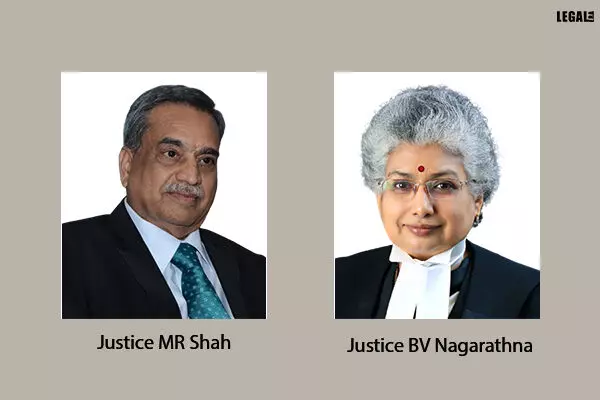- Home
- News
- Articles+
- Aerospace
- Agriculture
- Alternate Dispute Resolution
- Banking and Finance
- Bankruptcy
- Book Review
- Bribery & Corruption
- Commercial Litigation
- Competition Law
- Conference Reports
- Consumer Products
- Contract
- Corporate Governance
- Corporate Law
- Covid-19
- Cryptocurrency
- Cybersecurity
- Data Protection
- Defence
- Digital Economy
- E-commerce
- Employment Law
- Energy and Natural Resources
- Entertainment and Sports Law
- Environmental Law
- FDI
- Food and Beverage
- Health Care
- IBC Diaries
- Insurance Law
- Intellectual Property
- International Law
- Know the Law
- Labour Laws
- Litigation
- Litigation Funding
- Manufacturing
- Mergers & Acquisitions
- NFTs
- Privacy
- Private Equity
- Project Finance
- Real Estate
- Risk and Compliance
- Technology Media and Telecom
- Tributes
- Zoom In
- Take On Board
- In Focus
- Law & Policy and Regulation
- IP & Tech Era
- Viewpoint
- Arbitration & Mediation
- Tax
- Student Corner
- AI
- ESG
- Gaming
- Inclusion & Diversity
- Law Firms
- In-House
- Rankings
- E-Magazine
- Legal Era TV
- Events
- News
- Articles
- Aerospace
- Agriculture
- Alternate Dispute Resolution
- Banking and Finance
- Bankruptcy
- Book Review
- Bribery & Corruption
- Commercial Litigation
- Competition Law
- Conference Reports
- Consumer Products
- Contract
- Corporate Governance
- Corporate Law
- Covid-19
- Cryptocurrency
- Cybersecurity
- Data Protection
- Defence
- Digital Economy
- E-commerce
- Employment Law
- Energy and Natural Resources
- Entertainment and Sports Law
- Environmental Law
- FDI
- Food and Beverage
- Health Care
- IBC Diaries
- Insurance Law
- Intellectual Property
- International Law
- Know the Law
- Labour Laws
- Litigation
- Litigation Funding
- Manufacturing
- Mergers & Acquisitions
- NFTs
- Privacy
- Private Equity
- Project Finance
- Real Estate
- Risk and Compliance
- Technology Media and Telecom
- Tributes
- Zoom In
- Take On Board
- In Focus
- Law & Policy and Regulation
- IP & Tech Era
- Viewpoint
- Arbitration & Mediation
- Tax
- Student Corner
- AI
- ESG
- Gaming
- Inclusion & Diversity
- Law Firms
- In-House
- Rankings
- E-Magazine
- Legal Era TV
- Events
Additional Chief Metropolitan Magistrate cannot be said to be subordinate to the Chief Metropolitan Magistrate: Supreme Court

Additional Chief Metropolitan Magistrate cannot be said to be subordinate to the Chief Metropolitan Magistrate: Supreme Court
"Chief Metropolitan Magistrate in addition, may have administrative powers. However, for all other purposes and more particularly the powers to be exercised under the Cr.PC both are at par.", the bench comprising Justices MR Shah and BV Nagarathna observed.
The question before the Supreme Court was whether the Additional Chief Metropolitan Magistrate can be said to be subordinate to the Chief Metropolitan Magistrate. Answering in the negative, Court observed that Additional Chief Metropolitan Magistrate cannot be said to be subordinate to the Chief Metropolitan Magistrate in so far as exercise of judicial powers are concerned.
The bench observed thus while upholding the view expressed in a Bombay High Court judgment that (i) the District Magistrate, Chief Metropolitan Magistrate is not a persona designata for the purposes of Section 14 of the SARFAESI Act;
(ii) the expression "District Magistrate" and the "Chief Metropolitan Magistrate" as appearing in Section 14 of the SARFAESI Act shall deem to mean and include Additional District Magistrate and Additional Chief Metropolitan Magistrate for the purposes of Section 14 of the SARFAESI Act.
To address the question at hand, the bench referred to Sections 11, 12, 15, 16, 17, 19 and 35 and noticed the following:
1. Any Metropolitan Magistrate can be appointed by the High Court to be the Chief Metropolitan Magistrate. The High Court may appoint any Metropolitan Magistrate to be an Additional Chief Metropolitan Magistrate, and such Magistrate shall have all or any of the powers of a Chief Metropolitan Magistrate under Cr.PC or under any other law for the time being in force as the High Court may direct.
2. The Chief Metropolitan Magistrate and every Additional Chief Metropolitan Magistrate shall be subordinate to the Sessions Judge; and every other Metropolitan Magistrate shall, subject to the general control of the Sessions Judge, be subordinate to the Chief Metropolitan Magistrate.
Therefore, the bench observed:
"Thus the judicial powers and the powers, under the Cr.PC which may be exercised by the Chief Metropolitan Magistrate, can be exercised by the Additional Chief Metropolitan Magistrate also. Thus, the Additional Chief Metropolitan Magistrate can be said to be at par with the Chief Metropolitan Magistrate in so far as the powers to be exercised under the Cr.PC are concerned. The Chief Metropolitan Magistrate in addition, may have administrative powers. However, for all other purposes and more particularly the powers to be exercised under the Cr.PC both are at par. Therefore, the Additional Chief Metropolitan Magistrate cannot be said to be subordinate to the Chief Metropolitan Magistrate in so far as exercise of judicial powers are concerned."



